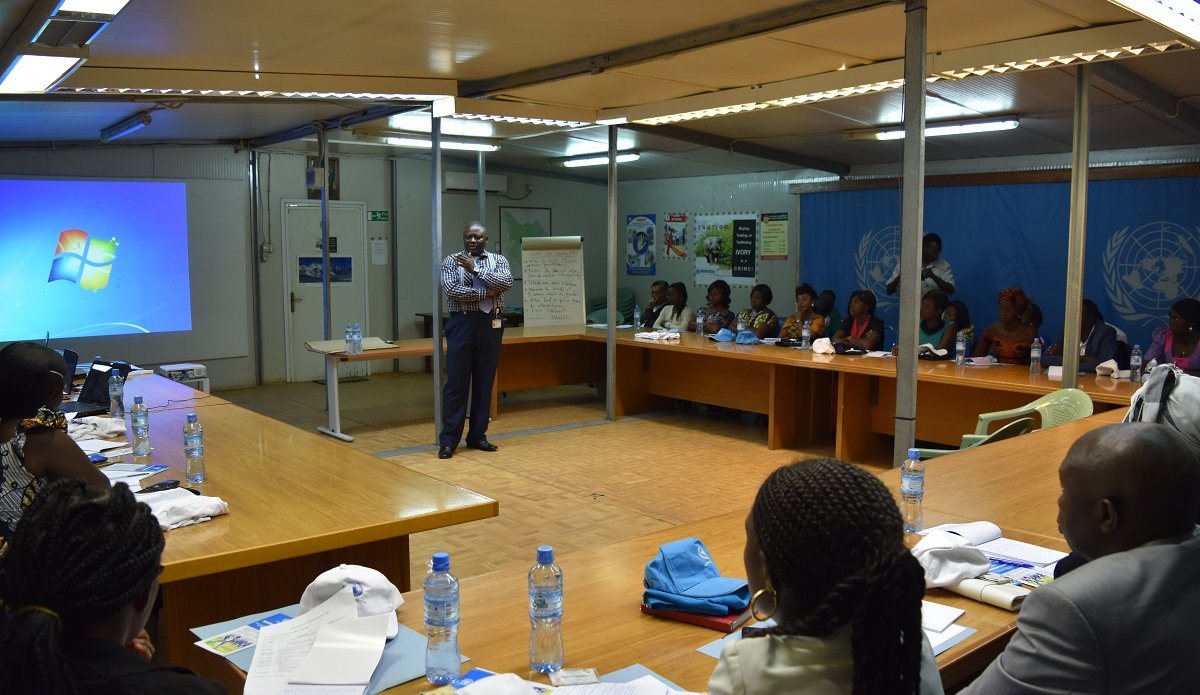Use of whistle blowing to fight sexual exploitation and abuse
Bunia – 9 August 2016 : 40 students from 8 universities participated in an awareness-raising workshop on the fight against sexual exploitation and abuse organized by MONUSCO’s conduct and discipline unit in partnership with the local NGOs: Justice-Plus, Le Bon Samaritain and SOFEPADI, specialized in the fight against sexual violence and impunity.
“Though cases of sexual exploitation and abuses committed by United Nations staff in the Democratic Republic of Congo are on the decrease, one more case should be too much.” said the head of the Conduct and Discipline unit. By raising awareness of the students, MONUSCO Ituri hopes to encourage and facilitate whistle blowing of such cases committed by United Nations staff, in full compliance with the established norms in this areas, namely confidentiality (to protect both the victim and the perpetrator but also the whistleblower) as well as the proofs produced by the whistleblower to facilitate the investigations.
Through open discussions, the workshop provided clarifications on the sexual exploitation and abuse and presented the rules and mechanism in place to reduce those cases likely to be committed by the United Nations staff. The participants understood how to report any suspected cases to local ONGs or to MONUSCO’s Conduct and Discipline office for the purposes of investigations and possible sanctions against the staff involved.
“The United Nations have a zero tolerance policy on the sexual exploitation and abuse. Such behaviors must be denounced and we do count on you to help us fight the acts committed by the United Nations staff,” said the interim Director of the MONUSCO Ituri office.
Beyond the cases of sexual exploitation and abuses reportedly committed by the United Nations staff, the workshop offered the students the opportunity to discuss with local NGOs matters such as prevention of sexual violence and assistance to the victims in Ituri.
At the end of the workshop, the students, through their spokesperson, pledged to serve as “actors in the fight against any sexual exploitation and abuse committed by the United Nations staff or any member in the community.”
Anne HERRMANN
 UN
UN United Nations Peacekeeping
United Nations Peacekeeping




